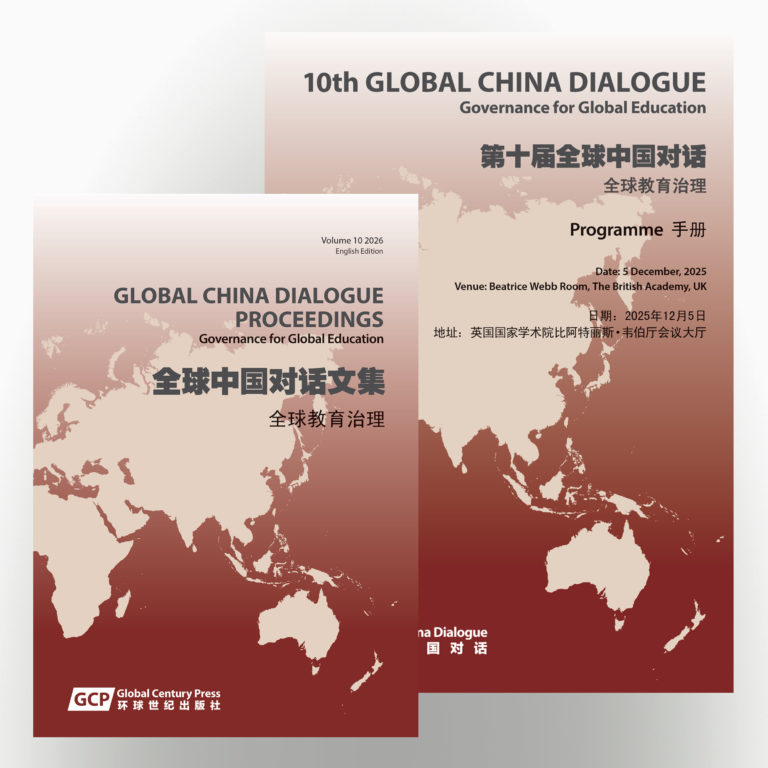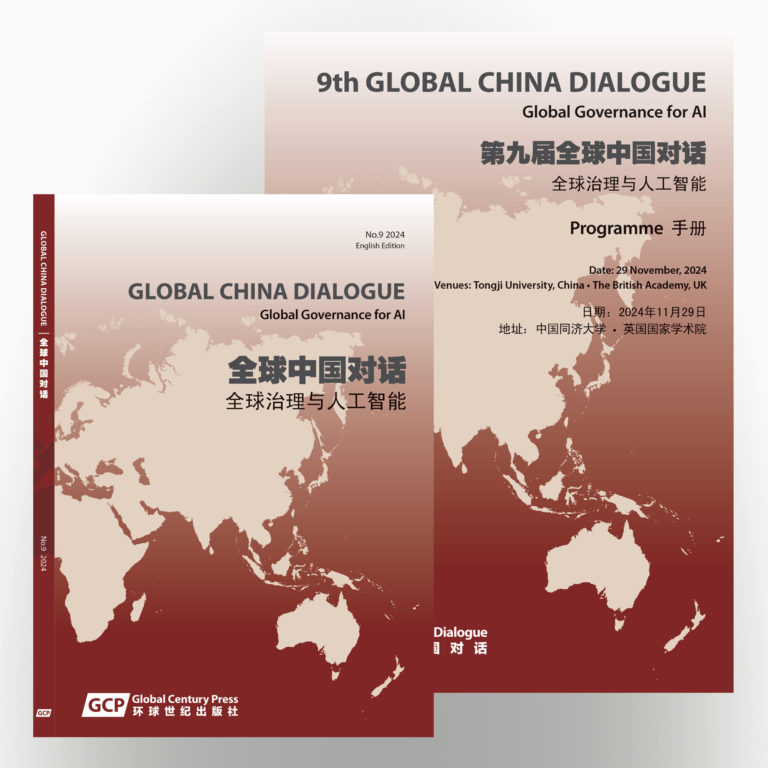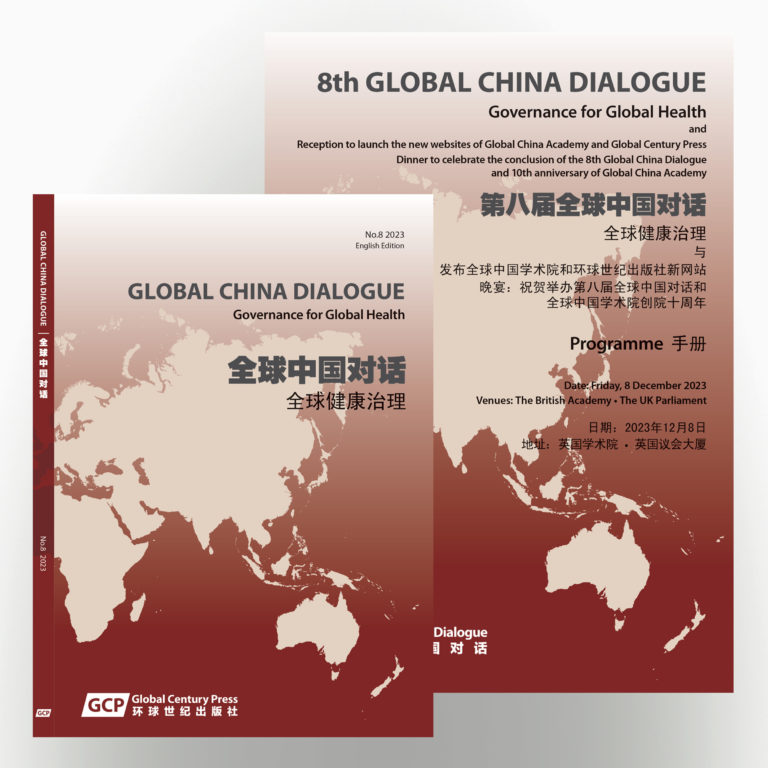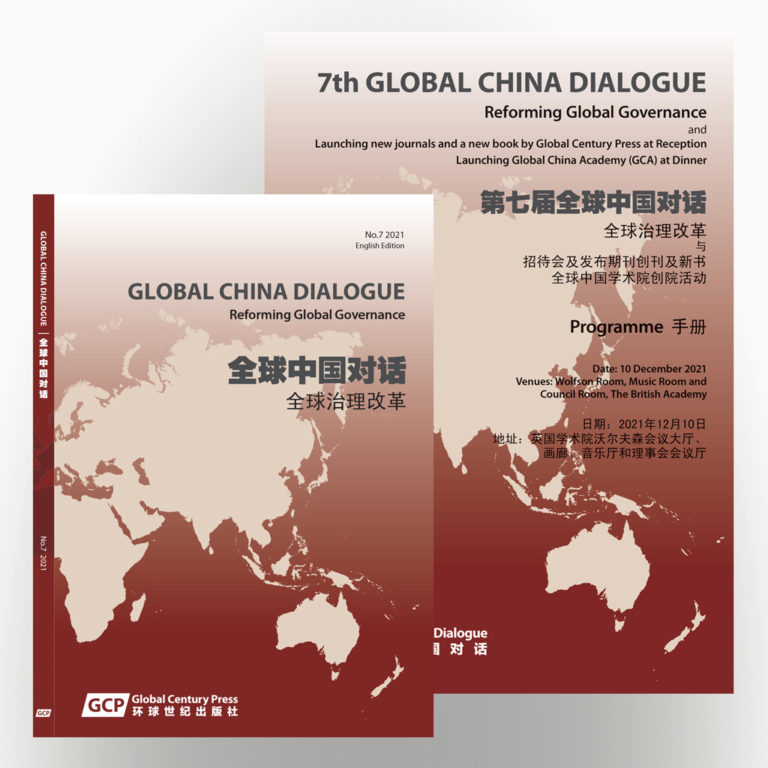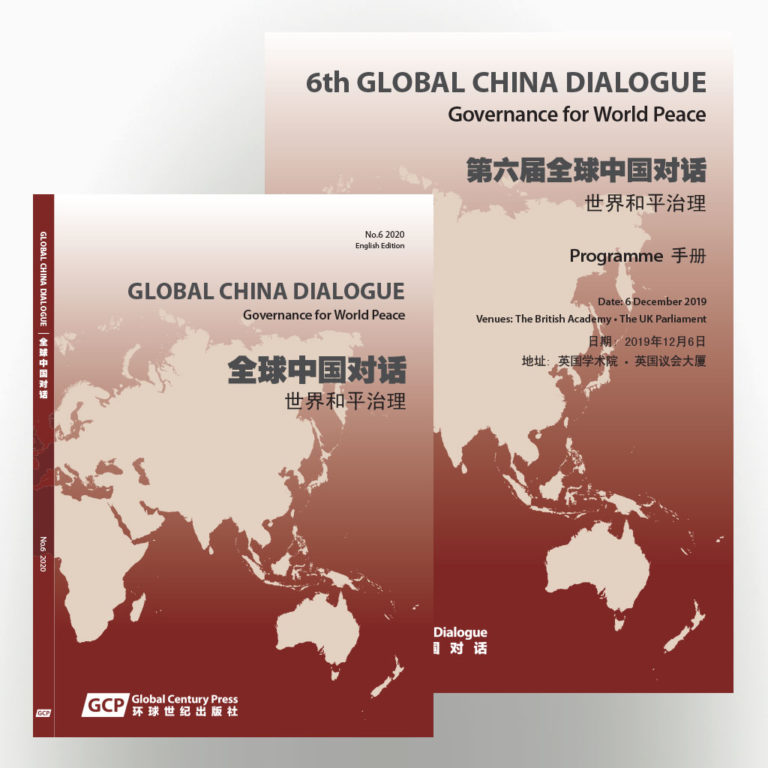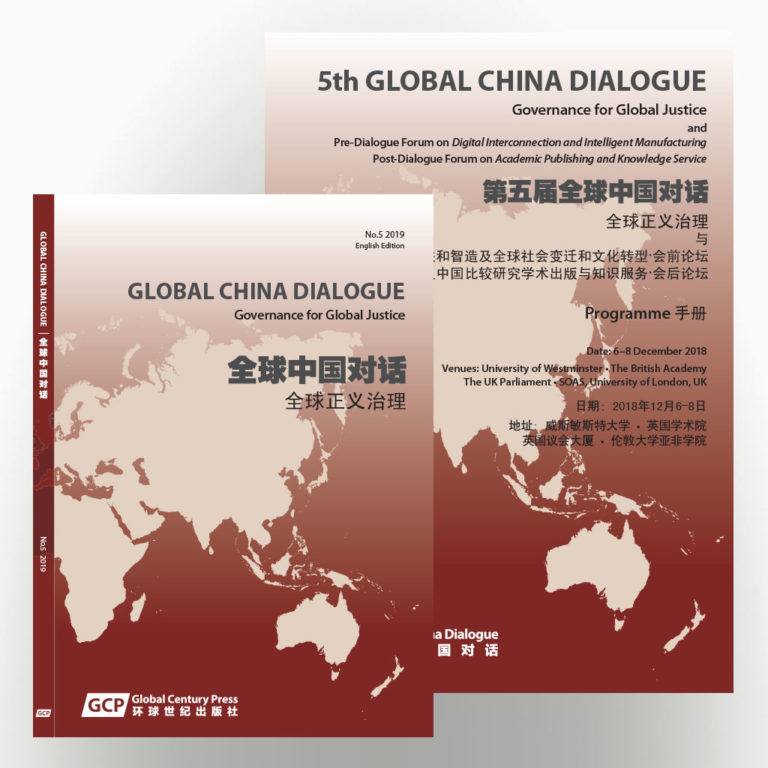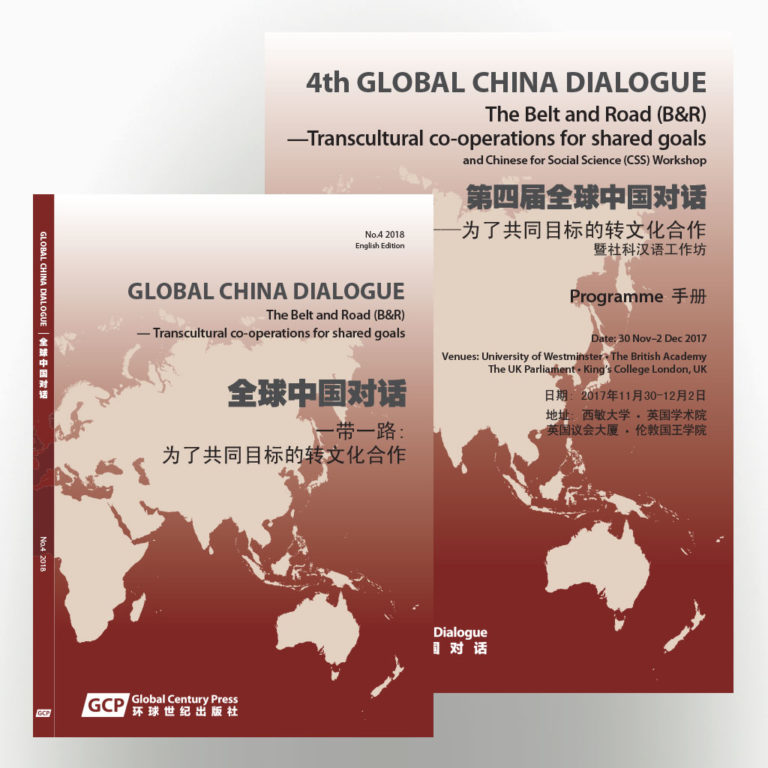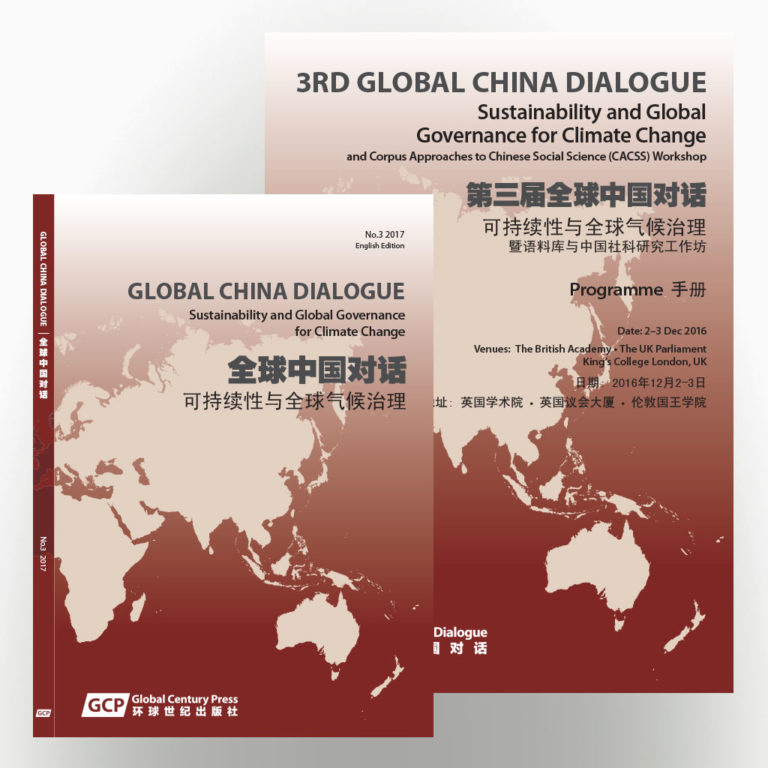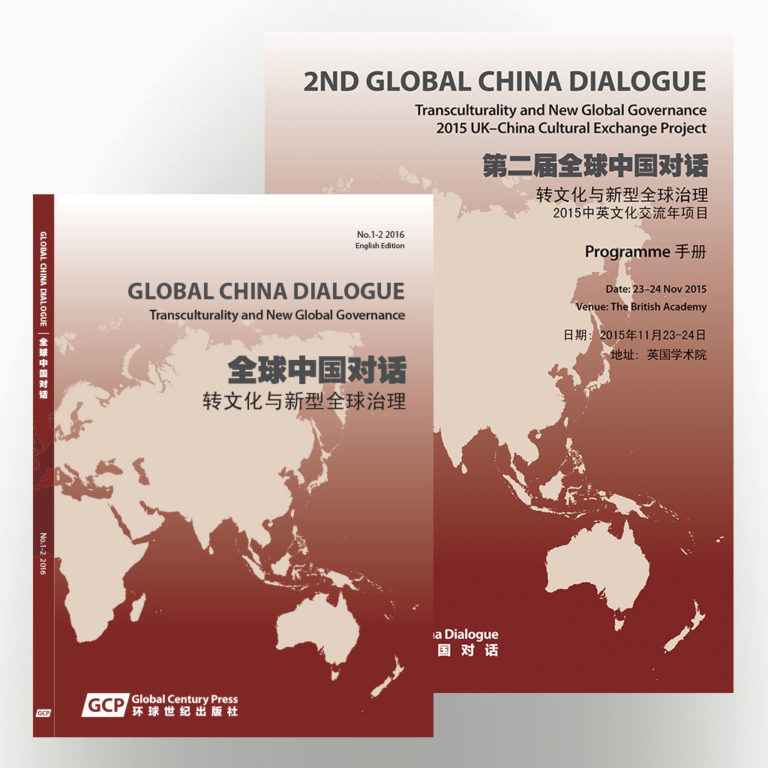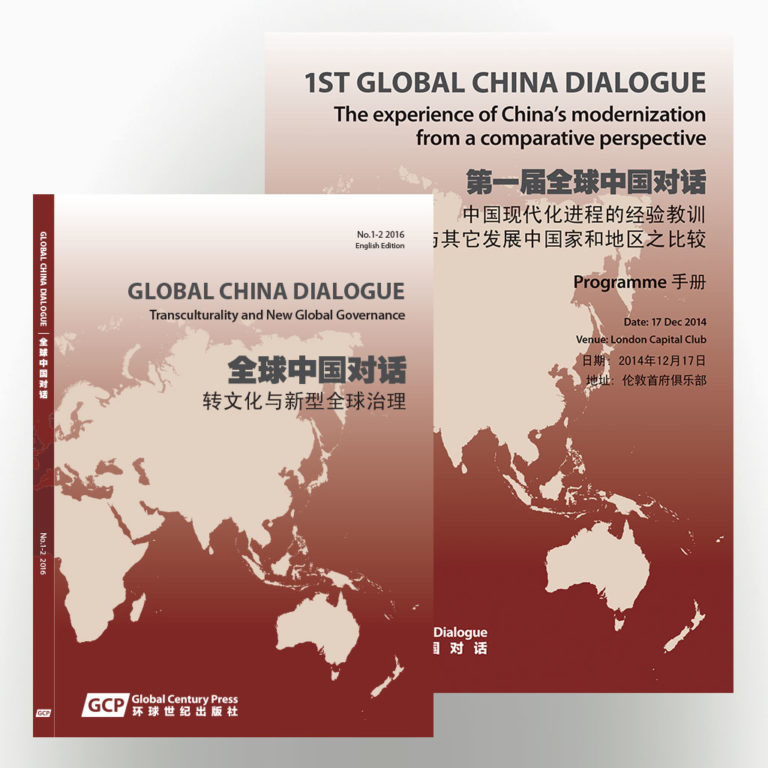The Global China Dialogues
The road to peace and development is strewn with numerous risks and challenges. The international system and order are in flux and we are seeing profound shifts in the balance of power. At the same time, rapid developments in technology and society have had a profound impact on patterns of thinking, behaviour and interaction as well as on the moral principles of different countries and groups. All countries, whether developing or developed, must adapt ideas of ‘good governance’ to this shifting international and social environment.
Such efforts and initiatives are moves in the same direction: towards reaching an in-depth understanding of the knowledge systems of the human community and the development of a ‘global cultural sphere’ beyond any single culture, state or nationality, under the condition of global governance. Thus, the theme of the development and governance of China, Europe and the world has gradually become one of the key research interests of scholars worldwide.
To jointly achieve these goals and tackle the problems we all face, dialogue between China and the world is essential. The Global China Dialogue (GCD) series of forums focuses on these issues, aiming to enhance public understanding of current global affairs and common interests through public dialogue and discussion between Chinese and non-Chinese academics, experts, professionals and practitioners and interested laypeople, from interdisciplinary and comparative perspectives.
In addition to universities, research institutions and professional think tanks, the GCDs also work closely with Chinese and other governments, international organizations, media and publishing units to track global hot topics over the long term. It provides a high-end platform for the global public interests of China and Chinese participation in building a global society and a comprehensive governance of such a society.
The GCDs are an ongoing creative social activity, bringing Chinese and Western scholars and opinion leaders together to explore transculturality and cultural generativity, contributing to the development of a ‘global cultural sphere’. Not every contribution will be directly related to China or reflect intimate knowledge of China, but will present a perspective on what could be China’s role in global governance, comparing and contrasting China with theories, methods or measures that pertain in other countries and in the world.
The GCDs also develop the rules of ‘civilized dialogue’, encouraging both sides to listen to the other, understand cultural differences, respect local customs, accept different perspectives and acknowledge the common destiny of humanity. In particular, they explore new global governance, encompassing national governments, international organizations, multinational companies, NGOs and citizens, with a mission to build a harmonious, symbiosis-based human destiny community.
Past and future programmes of the series have been developed within the framework of the UN’s Sustainable Development Goals (SDGs), which accord with UNESCO’s mission of defending peace and the conditions for building sustainable development world through creative intelligence, as follows:
- 2030 GCD XV: Global Sustainable Development and Security Governance
- 2029 GCD XIV: Global Energy Governance and Disaster Management
- 2028 GCD XIII: Global Labour and Sustainable Development
- 2027 GCD XII: Global Migration Governance
- 2026 GCD XI: Global AI and Data Governance
- 2025 GCD X: Governance for Global Education
- 2024 GCD IX: Global Governance for AI
- 2023 GCD VIII: Governance for Global Health
- 2021 GCD VII: Reforming Global Governance
- 2019 GCD VI: Governance for World Peace
- 2018 GCD V: Governance for Global Justice
- 2017 GCD IV: The Belt and Road (B&R) – Transcultural Cooperation for Shared Goals
- 2016 GCD III: Sustainability and Global Governance for Climate Change
- 2015 GCD II: Transculturality and New Global Governance
- 2014 GCD I: The Experience of China’s Modernization from a Comparative Perspective
So far, we have successfully held nine Global China Dialogues as planned and are currently preparing for the tenth. The themes of the above five planned dialogues (2026-30) may be slightly adjusted.
- Click here to visit the Global China Academy events page
2025 GCD X: Governance for Global Education
The 10th Global China Dialogue (GCD X), with the theme ‘Governance for Global Education’, will be held on 5th December 2025.
Following nine successful Global China Dialogue (GCD) Forums, the 10th GCD (GCD10) – ‘Governance for Global Education’ – will be held at the British Academy on Friday, 5 December 2025. GCD10 will focus on how to promote sustainable development in education worldwide through policy coordination, international cooperation, equity assurance, quality improvement, and institutional innovation.
2024 GCD IX: Global Governance for AI
The 9th Global China Dialogue (GCD IX), with the theme ‘ Global Governance for AI’, will be held on 29th November 2024.
The 9th Global China Dialogue (GCD IX), focusing on ‘Global Governance for AI,’ aims to address the pressing challenges and opportunities arising from artificial intelligence in the context of global governance. Building upon the success of GCD VIII, which centered on ‘Governance for Global Health,’ GCD IX will explore how AI impacts various aspects of global society, economy, and geopolitics.
2023 GCD VIII: Governance for Global Health
The 8th Global China Dialogue (GCD VIII), with the theme ‘Governance for Global Health’, will be held on 8th December 2023.
The 2020s have seen many weaknesses in our health care systems and structures emerge. The Covid-19 pandemic showed that health is a challenge that requires global governance and cooperation. Yet other issues such as climate change, the global prevalence of noncommunicable diseases, inadequate access to healthcare services and the lack of health workers globally also show that the need for global cooperation to deal with transnational challenges has never been greater.
2021 GCD VII: Reforming Global Governance
The 7th Global China Dialogue (GCD VII), with the theme ‘Reforming Global Governance’, was held on 10th December 2021.
The aim of the 7th Global China Dialogue was to yield proposals for the reform of global governance. Global governance, in the broadest sense, covers the worldwide ordering of society to enable the peoples of the world to meet existential challenges, and to give the chance for human beings everywhere to lead fulfilling lives. China’s ‘community of a shared future for mankind’ also provided the world with a similar vision. Discussants from China and other countries examined four areas of strategic significance for realizing these or, indeed, any visions for the governance of human society at this time of crisis.
2019 GCD VI: Governance for World Peace
The 6th Global China Dialogue (GCD VI), with the theme ‘Governance for world peace’, was held on 6th December 2019.
The 6th Global China Dialogue brought together around 30 speakers, consisting of academics, professionals, practitioners and officials, and more than 100 participants from China, Jordan, Nigeria, France, Germany, Denmark and the UK. It highlighted crucial settings for the international co-operation that is required for reform to take place, based on the resolution of long-standing conflicts.
2018 GCD V: Governance for Global Justice
The 5th Global China Dialogue (GCD V), with the theme ‘Governance for Global Justice’, was held on 7th December 2018.
The overall concept of the Global China Dialogue series is to provide regular examinations of the consequences of China’s rise for the rest of the world. It has gained in relevance as the world’s governance system comes under ever greater strain from national reactions to globalization.
Justice is the taken-for-granted basis of human relations, from the personal to the global. It comes into focus whenever these relations are disrupted and injustices come to light. The 5th Global China Dialogue reviewed the basis for global governance and examined how China can contribute to a just global order.
2017 GCD IV: The Belt and Road (B&R) – Transcultural Cooperation for Shared Goals
The 4th Global China Dialogue (GCD IV, with the theme ‘The Belt and Road (B&R) – Transcultural Cooperation for Shared Goals’, was held on the 1st December 2017.
The 4th Global China Dialogue develops the theme and theory of the 2nd GCD, ‘transculturality and new global governance’, using ‘The Belt and Road’ as an example of a possible implementation of transcultural cooperation with shared goals. GCD IV explored four issues:
- How the B&R connects different civilizations and cultures
- How people-to-people bonding operates through transcultural practice
- What are the theoretical and legal bases of the B&R?
- How the media can help to promote the B&R as a Chinese contribution to the human community
2016 GCD III: Sustainability and Global Governance for Climate Change
The 3rd Global China Dialogue (GCD III), with the theme ‘ Sustainability and Global Governance for Climate Change ’, was held on 2nd December 2015.
The 3rd Global China Dialogue brought into sharp relief the theories and methods underlying current debates about global climate change and how to deal with it. Four panel dicussions connected Chinese research and thinking on managing climate change with the equivalent work in the West to mount a common human effort to deal with the global threat to our life on this planet.
In sequence, the four panels reviewed the 2015 Paris Agreement from a governance perspective, presented the case for corpus-based discourse studies on climate change, examined sustainability in China’s green revolution, and questioned the deliverability of the new sustainable development goals (SDGs).
2015 GCD II: Transculturality and New Global Governance
The 2nd Global China Dialogue (GCD II), with the theme ‘Transculturality and New Global Governance ’, was held on 23-24 November 2015.
The year 2015 was a significant date, having been announced as the ‘Year of UK–China Cultural Exchange’ by both Chinese and British governments. In this year, both countries held a series of high-level cultural activities to promote cultural communication and industrial collaboration, as well as mutual understanding and friendship between them. In particular, they chose ‘creativity’ as a theme for their Culture Seasons.
The 2nd Global China Dialogue focused on ‘transculturality and new global governance’ and formed a complement to the Second High-level Policy Forum on Global Governance, held in October 2014 in Beijing, China, and organized by the United Nations Development Programme (UNDP). The exchange of ideas in different fields is an essential part of transcultural communication, which has deepened in recent years.
2014 GCD I: The Experience of China’s Modernization from a Comparative Perspective
The 1st Global China Dialogue (GCD I), with the theme ‘The Experience of China’s Modernization from a Comparative Perspective’, was held on 17th December 2014.
Global China Academy (GCA) encourages global and comparative studies on China in the social sciences and humanities, and aims to add to the sum of human knowledge. The Global China Dialogue series are core events in pursuit of these goals. The inaugural Global China Dialogue explored four questions:
- What is the significance of China’s experiences and lessons from its process of modernization for the other countries in the world?
- How to compare the experiences of modernization between China and other countries in South East Asia, Latin America, or Africa?
- What can Europeans learn from Chinese experience?
- How do the developed countries and developing countries share experiences of modernization and work collaboratively in shaping global society?
Click here to visit the Global China Academy events page

